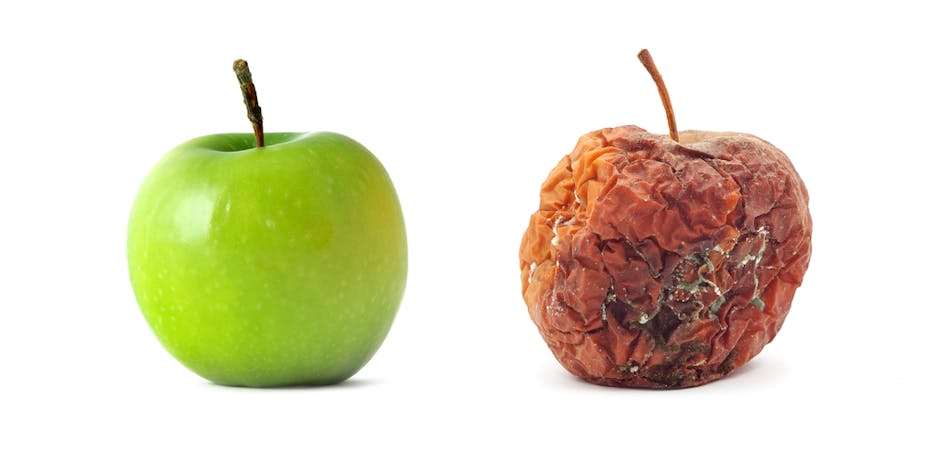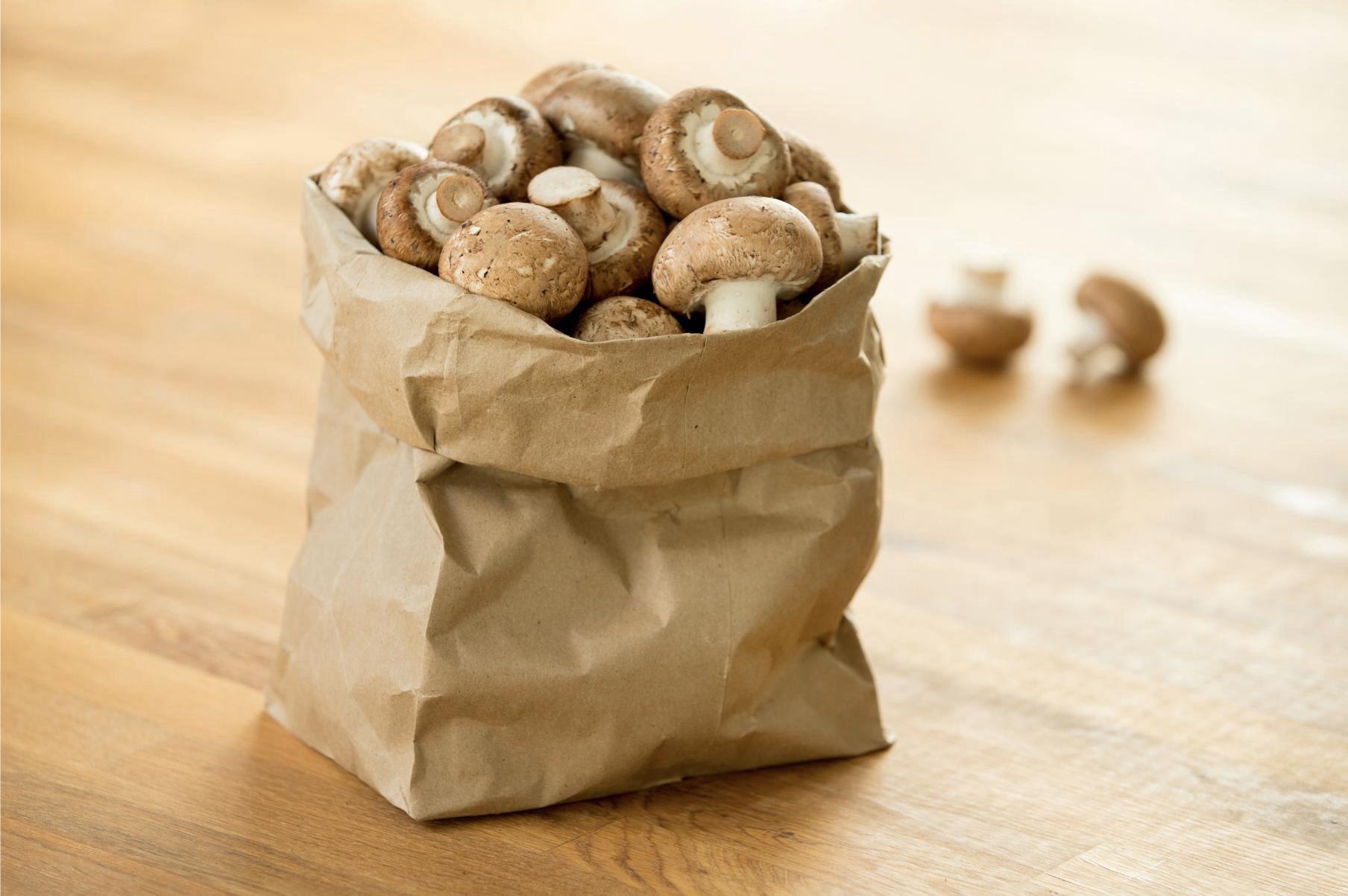-
Knowing the shelf life and proper storage of your fresh fruit and veg is important. As a nation, each year we record over 4.2 million tonnes of food waste, that’s a lot. Wasting food not only contributes to landfill and wasted money from the consumer, but a lot of carbon emissions and wasted resources.
Here at Foodlum, we want to teach you how to properly store your fresh produce, because no one wants to waste perfectly good food or money. With a little bit of knowledge, you can buy with confidence and know which fruits and veggies need refrigerated storage or are fine on the countertop, and how long produce actually lasts.
What Determines the Shelf Life of Fruit?
The biggest thing that affects the shelf life of the fruit is the type of fruit or vegetable itself, plus the time spent in the supply chain (storage, transport) from when it was picked. Some different families of fruits and vegetables simply just last longer, like potatoes, apples, carrots, garlic, lemons and oranges. These varieties if stored correctly, can be eaten for up to a month or in some cases longer.

But what we can do about it? Well the age of the fruit we consume is a major factor in how long different fruits and vegetables last. Most fruits found in supermarkets are harvested before they have fully ripened, although there are some fruits like bananas and avocados where this is desirable, for the majority it’s not. They are then stored at very low temperatures with low oxygen levels, stopping the ripening process. Then, when they are stocked on the supermarket shelves, at room temperature, the ripening process occurs rapidly. So, when we’re talking about shelf-life of produce, we’re referring to how long they will last after it has fully matured, not from the date you bought them.
The easiest thing to do is buy organic and buy fresh, the best way to increase the storage life of produce is selecting the freshest available. If you’re shopping online, and won’t be able to inspect the produce before, shop for items that are in season to increase freshness.
Where to Store What?
The easiest way to think about it is, what to store in the fridge, and what’s good in the pantry/fruit bowl. It’s as simple as that.
Like we talked about in our other articles, many fruits are sprayed with a gas called ethylene when they are harvested. This delays the natural ripening process, allowing supermarkets to transport and store the fruit before putting it on supermarket shelves. This is the reason why ripening happens so quickly once you take the produce back home.
So, after freshness, which is most important, remember Temperature, Airflow and Ethylene

Whilst ethylene prevents the ripening in fruits and eventual decay of produce, certain groups of produce are ethylene sensitive, like cabbage, leafy greens, broccoli and cauliflower. Whether you’re refrigerating or not, store these items separately from Apples and other sources ethylene.
We like to eliminate waste wherever possible, but if you’ve already purchased some items and they come in plastic or paper bags, it’s good to leave them in there to prevent them from losing their moisture and dehydrating, as well are preventing any negative ripening interactions with other produce.
|
Fruit |
Fridge Shelf Life |
Pantry (Cool and Dark) |
|
Apples |
1-2 Months |
2-3 Weeks |
|
Avocados |
7-14 Days |
3 Days |
|
Bananas |
Don’t Refrigerate |
7 Days (If Green), 3-4 if Ripe |
|
Citrus |
2+ Weeks |
1-2 Weeks |
|
Pears |
2 Weeks |
3-5 Days |
|
Berries |
2-4 Days (isolated and covered) |
Don’t Store in Pantry |
|
Watermelon |
6-8 Days |
2-3 Days |
|
Vegetable |
Fridge Shelf Life |
Pantry (Cool and Dark) |
|
Beans |
3-6 Days |
Don’t Store in Pantry |
|
Cabbage |
1 Month |
Don’t Store in Pantry |
|
Carrots |
1-2 Months |
Don’t Store in Pantry |
|
Celery |
2-3 Weeks |
Don’t Store in Pantry |
|
Corn |
3-4 Days |
Don’t Store in Pantry |
|
Cucumber |
10-12 Days |
Don’t Store in Pantry |
|
Eggplants |
10-12 Days |
Don’t Store in Pantry |
|
Leafy Greens |
10-12 Days |
Don’t Store in Pantry |
|
Mushrooms |
7-8 Days |
Don’t Store in Pantry |
|
Onions |
1-3 Months |
1-3 Months |
|
Potatoes |
Don’t Refrigerate |
2-4 Months |
|
Tomatoes |
5-7 Days |
5-7 Days |
Tips for Making that Produce Last Longer
In addition to this information above, there are several things you should know that are often necessary to maintain the lifespan and quality of your fruit and veggies:
- Store apples in plastic and separate them from other fruits and veges in the fridge, since apple gas (ethylene) turns things brown.
- Keep all citrus fruits in paper bags or containers, separate from other fruits and veges.
- Keep grapes in a covered bowl to retain their moisture.
- Wrap melons tightly in cling wrap so their odour won’t contaminate other foods.
- Wrap all tomatoes in paper if you want them to stay fresh in the fridge.
- When storing veggies in plastic bags, poke a few holes in the bags to provide air circulation.
- Always keep fruits and vegetables in separate produce sections of your fridge.
- Never store potatoes and onions together, as they give off gases that can cause rapid decay of the other. Store them both separately in a cool dark place
- Don’t wash the fruit or veggies prior to putting them in the fridge. Only do this once you’re ready to eat them.
- Eating foods that have passed their shelf lives can lead to food poisoning, salmonella poisoning and other illnesses, so it is best that you avoid doing so. Knowing the shelf lives and expiry dates of the foods in your fridge is an easy way to avoid this.
How Does Foodlum Help?
Simply put, we get you the produce as quickly as possible. Fresh fruit and veggies are delivered to the Sydney Markets on Sunday Night and Monday Morning. We deliver straight from the markets to your front door, on the same morning.
Instead of sitting in the cool room of a supermarket or green grocer, or worse, on the shelves, the produce is optimally fresh as all the storage is done on your end.
We follow the principles of Just in Time Inventory, meaning we don’t store anything on our end, leading to no wastage. By cutting out the middle man (Transport, Storage, Logistics), naturally extends the shelf life for all of your produce.
Moving the supply chain to the consumers (storing at home is something we all do regardless) is environmentally conscious plus your taste buds and wallet will thank you for it!
Thanks for reading,
Hope you're well!
References
https://www.canstarblue.com.au/appliances/shelf-life-guide-foods-fridge/
https://foodsguy.com/how-long-fruit-last/
https://www.nytimes.com/wirecutter/blog/keep-your-produce-fresh/


Leave a comment